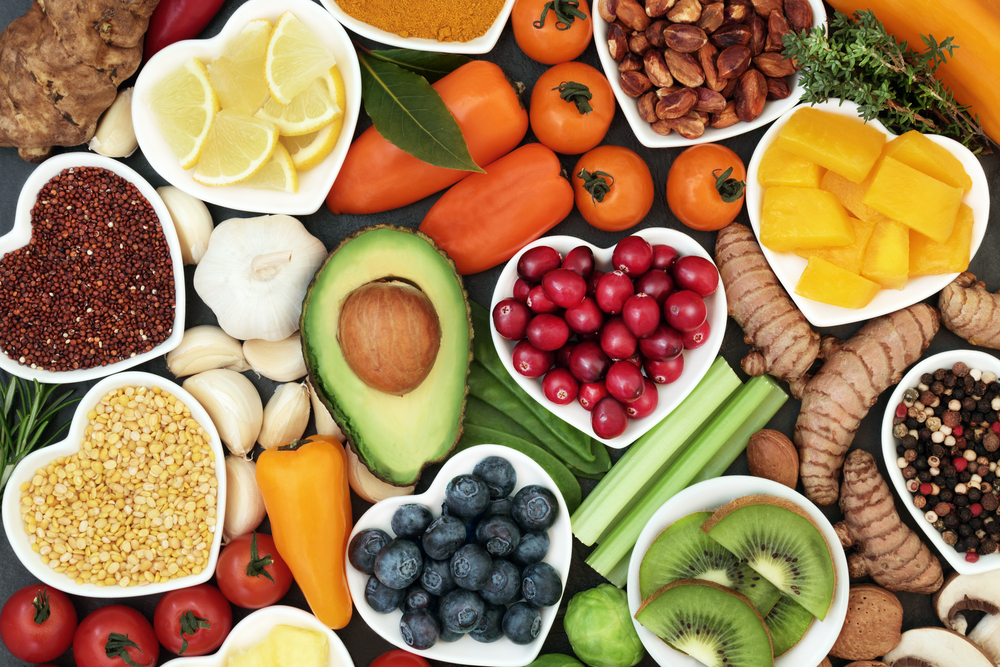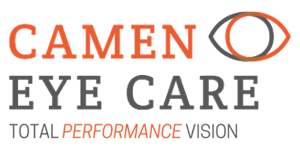20% Discount on Eye Exams (not to be combined with Insurance)

6 Antioxidants to Help With Eye Health
Many poets have considered eyes to be the windows into the soul. Their expressiveness not only gives a glimpse into who we are, but they’re also what allows us to interpret the world around us visually. The complex organs are a very important part of our everyday lives and it’s imperative that we take good care of them. One way to do that is by consuming antioxidants that are beneficial for your eye health, so we’ve compiled six of them along with some natural ways to obtain them:
Vitamin A is essential for healthy vision. The American Academy of Ophthalmology says that this particular vitamin is vital for eyesight because it helps our eyes produce the pigments it needs in order to see the full spectrum of light. It also helps your eyes to produce enough moisture to keep them lubricated and is a component of rhodopsin, a protein that helps your eyes see in low light.
You can find Vitamin A in many orange foods like carrots, sweet potatoes, pumpkins, cantaloupe, apricots, and also in eggs and leafy greens. Make sure you’re getting enough of these foods in your diet because without this essential nutrient you’re more at risk for macular degeneration, glaucoma, and other age-related eye problems. In fact, a Vitamin A deficiency can even cause preventable blindness!
Vitamin E is a powerful antioxidant that has been known to decrease your risk of developing macular degeneration and cataracts. It protects your eyes against UV rays and helps prevent eye cell damage. Antioxidants fight free radicals in the body by giving them an extra electron to reduce their reactivity. Left unchecked, free radicals can cause harm to your cells and even kill them. This makes Vitamin E critical to protecting your retina from cell damage.
Vitamin E can be found in leafy greens, tropical fruits like kiwi and papaya, red bell peppers, vegetable oil and olive oil, wheat germ, sweet potatoes, and cereals. Peanuts, hazelnuts, almonds, and sunflower seeds also have high amounts of Vitamin E.
Vitamin C is an antioxidant like Vitamin E. It also helps with fighting and preventing age-related eye problems and it reduces the reactivity of free radicals in your body. Along with the many other health benefits touted by Vitamin C, the antioxidant also helps your eye health. You can find Vitamin C in citrus fruits, berries, potatoes, cruciferous vegetables, tomatoes, and peppers.
Zinc is involved in the metabolism of the retina, the part of your eye that converts light into electrical signals that are sent to the brain. It’s also necessary for the proper functioning of the enzyme carbonic anhydrase which helps maintain the shape of your eye. A zinc deficiency can lead to vision problems like night blindness and age-related macular degeneration (AMD).
You can find zinc in oysters, beef, pork, crab, lobster, chicken, and dairy products. If you’re a vegan, don’t worry because it’s also available in nuts, beans, lentils, seeds, oatmeal, chickpeas, mushrooms, and whole grains.
Lutein is an important part of a functioning retina and is found in high concentrations in the macula, the small area at the center of the retina responsible for sharp vision. It’s a carotenoid pigment like zeaxanthin and beta-carotene and helps protect the retina from damage caused by ultraviolet (UV) light. It may help reduce the risk of AMD, improve visual acuity, and augment your contrast sensitivity.
Lutein and zeaxanthin are especially important in that they are both macular pigment protective.
Good dietary sources of lutein include leafy green vegetables such as kale, spinach, and broccoli, as well as eggs, corn, and orange peppers.
Zeaxanthin is a member of the carotenoid family of nutrients like lutein and it’s also concentrated in the retina. Together they form your macular pigment which functions as a UV blocker that protects your eyes. A healthy macular pigment is what enables you to have clear 20-20 vision and vivid color and a decreased macular pigment density is a risk factor for AMD.
Like lutein, zeaxanthin is found in green leafy vegetables as well as peas, summer squash, asparagus, egg yolks, and pumpkin. Goji berries, corn, and carrots also contain the two substances.
If you want to maintain your eye health and work to prevent vision loss, you should also get routine eye exams so you can stay on top of any changes in your eyesight and your general health. A professional optometrist can give you suggestions for improving your eye health as well as prescribe you a set of lenses to help improve your vision if you’re having problems. Eye exams can detect eye-related issues as well as highlight early warning signs of other diseases such as heart disease or multiple sclerosis. Schedule yours today at CamenEyeCare.com

Dr. Jesse Camen
Featured On:







